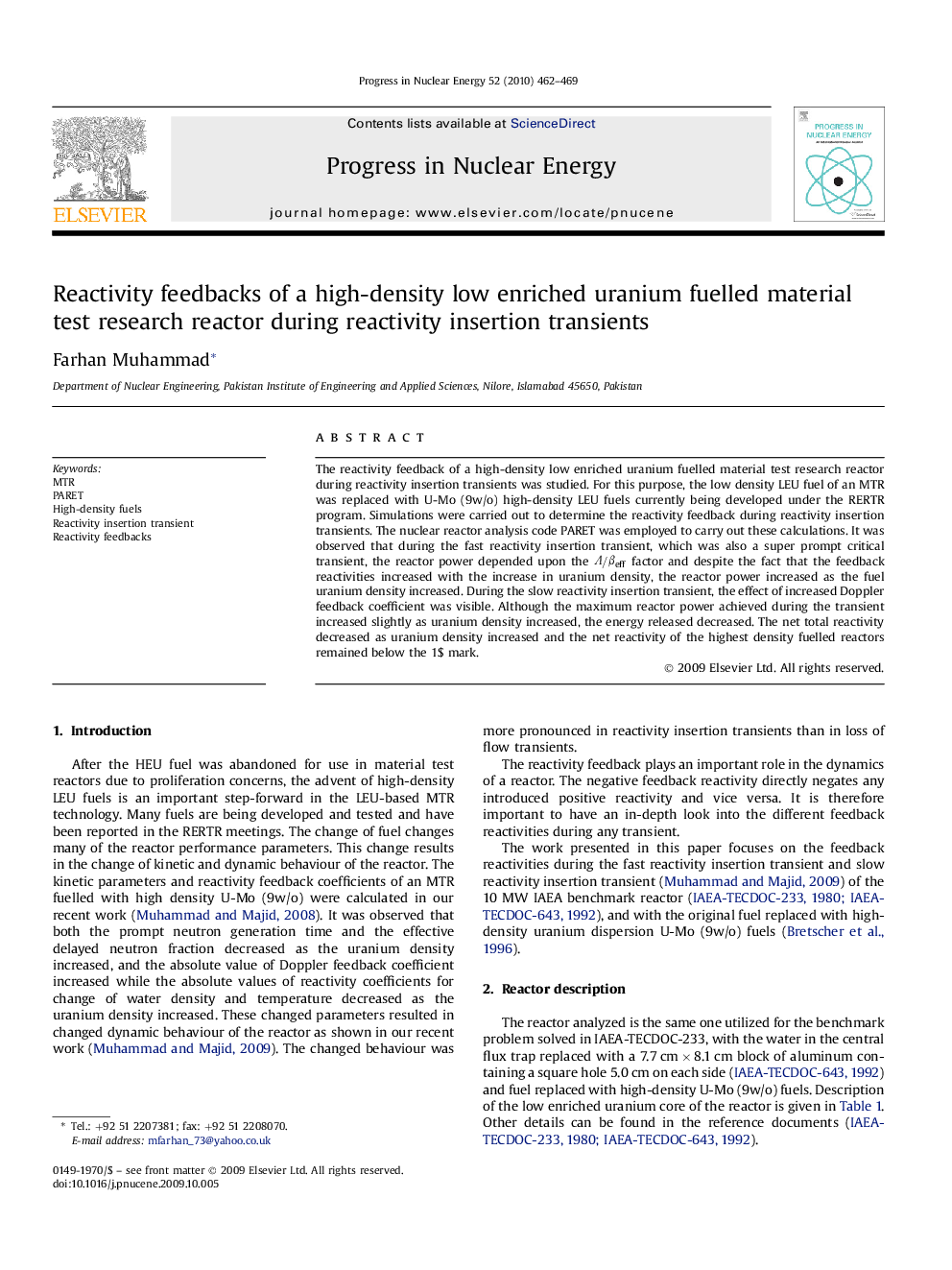| Article ID | Journal | Published Year | Pages | File Type |
|---|---|---|---|---|
| 1741188 | Progress in Nuclear Energy | 2010 | 8 Pages |
The reactivity feedback of a high-density low enriched uranium fuelled material test research reactor during reactivity insertion transients was studied. For this purpose, the low density LEU fuel of an MTR was replaced with U-Mo (9w/o) high-density LEU fuels currently being developed under the RERTR program. Simulations were carried out to determine the reactivity feedback during reactivity insertion transients. The nuclear reactor analysis code PARET was employed to carry out these calculations. It was observed that during the fast reactivity insertion transient, which was also a super prompt critical transient, the reactor power depended upon the Λ/βeffΛ/βeff factor and despite the fact that the feedback reactivities increased with the increase in uranium density, the reactor power increased as the fuel uranium density increased. During the slow reactivity insertion transient, the effect of increased Doppler feedback coefficient was visible. Although the maximum reactor power achieved during the transient increased slightly as uranium density increased, the energy released decreased. The net total reactivity decreased as uranium density increased and the net reactivity of the highest density fuelled reactors remained below the 1$ mark.
